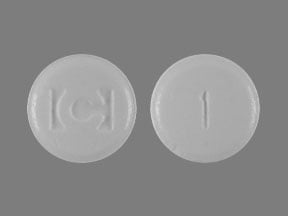
Fentora Coupons & Savings Card – Discount Prices from $1340.79
Brand for: Fentanyl
My prescription
Edit
100MCG, Fentanyl (28 Tablets)
Select pharmacy

CVS
$1340.79
COUPON PRICE
Walgreens
$1358.33
COUPON PRICE
Albertsons
$1375.04
COUPON PRICEFentora savings card
Show this card to your pharmacist
CVS
$1340.79
BIN
ID
PCN
GRP
015995
LHKPX842490
GDC
DR33
Powered by
Related opioids prescriptions
More prescriptions for pain
Related opioids prescriptions
More prescriptions for pain
Fentora (Fentanyl) dosage forms
Dosage Quantity Price from Per unit 100MCG 28 Tablets $1351.32 $48.26 100MCG 1 Tablet $42.22 $42.22 200MCG 1 Tablet $55.45 $55.45 200MCG 28 Tablets $1702.52 $60.80 400MCG 1 Tablet $84.06 $84.06 400MCG 28 Tablets $2461.97 $87.93 600MCG 1 Tablet $111.52 $111.52 600MCG 28 Tablets $3190.89 $113.96 800MCG 1 Tablet $139.25 $139.25 800MCG 28 Tablets $3926.80 $140.24
| Dosage | Quantity | Price from | Per unit |
|---|---|---|---|
| 100MCG | 28 Tablets | $1351.32 | $48.26 |
| 100MCG | 1 Tablet | $42.22 | $42.22 |
| 200MCG | 1 Tablet | $55.45 | $55.45 |
| 200MCG | 28 Tablets | $1702.52 | $60.80 |
| 400MCG | 1 Tablet | $84.06 | $84.06 |
| 400MCG | 28 Tablets | $2461.97 | $87.93 |
| 600MCG | 1 Tablet | $111.52 | $111.52 |
| 600MCG | 28 Tablets | $3190.89 | $113.96 |
| 800MCG | 1 Tablet | $139.25 | $139.25 |
| 800MCG | 28 Tablets | $3926.80 | $140.24 |
What is the drug FENTORA used for?
FENTORA is used for the management of breakthrough pain in cancer patients who are already receiving and are tolerant to around-the-clock opioid therapy for their underlying persistent cancer pain.
What schedule drug is FENTORA?
FENTORA is classified as a Schedule II controlled substance.
Is FENTORA discontinued?
FENTORA has not been discontinued. It is still available as a prescription medication for managing breakthrough pain in cancer patients who are already receiving and are tolerant to opioid therapy. However, availability may vary by location, and it is important to consult with a healthcare provider or pharmacist for the most current information.
How much does FENTORA cost?
The cost of FENTORA can vary significantly based on factors such as the pharmacy, location, insurance coverage, and dosage. Without insurance, the price can be quite high, often several hundred dollars for a supply of tablets. It is advisable for individuals to check with their local pharmacy or insurance provider for the most accurate and up-to-date pricing information.
What is the classification of Fentora?
Fentora is classified as an opioid analgesic. It is specifically used for the management of breakthrough pain in cancer patients who are already receiving and are tolerant to around-the-clock opioid therapy.
